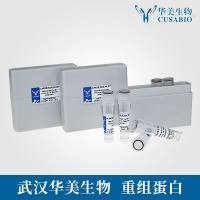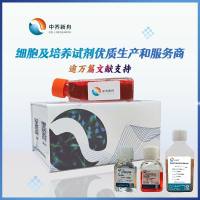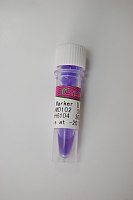In Situ Ligation Simplified: Using PCR Fragments for Detection of Double-Strand DNA Breaks in Tissue Sections
互联网
497
The simplified in situ
ligation procedure is described. All reagents for the assay can be easily obtained in any molecular or cell biology laboratory.
The technique uses ligation of double-stranded, PCR-derived DNA fragments labeled with digoxigenin or fluorophores for highly
selective detection of apoptotic cells in paraffin-embedded tissue sections. Two types of DNA fragments prepared by PCR are
employed. The fragment synthesized by Taq polymerase contains single-base 3′ overhangs, whereas the Pfu polymerase-made fragment
is blunt ended. Both fragments can be used as specific, sensitive and cost-effective DNA damage probes. After ligation to
apoptotic nuclei in tissue sections, they indicate the presence of double-strand DNA breaks with single-base 3′ overhangs
as well as blunt ends.









